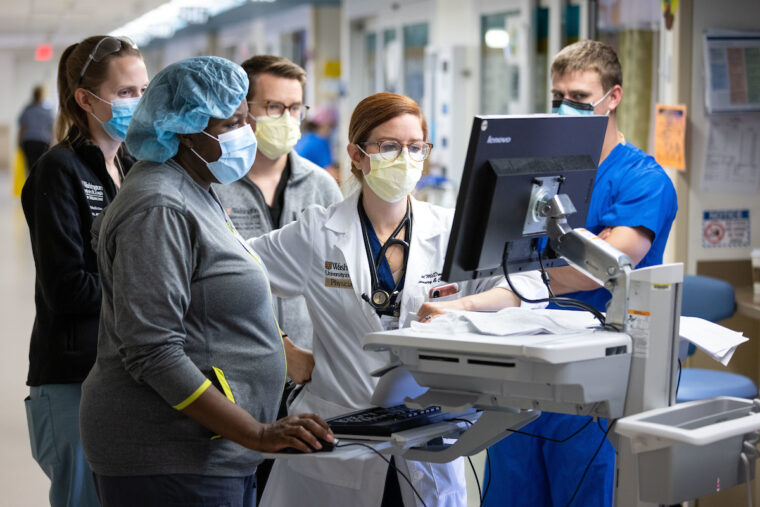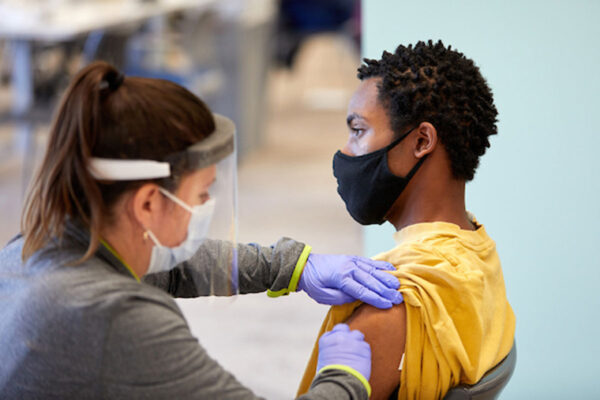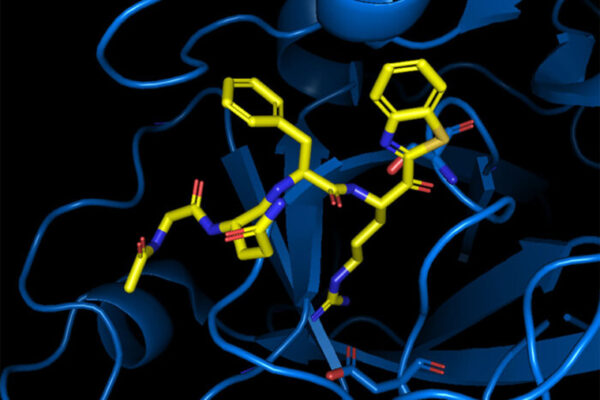Once again, health is on all of our minds this winter; some days, it seems, to the exclusion of all else. And as chancellor of not just the six schools on the Danforth Campus, but also of Washington University School of Medicine, my thoughts are frequently with the more than 12,000 physicians, scientists, scholars and staff who serve the region’s health-care needs on our Medical Campus and beyond.
Words cannot express how proud I am of this part of the university. These individuals provide compassionate clinical care, shape health-care policy, develop innovative tools and treatments, and advance basic science research that drives medical breakthroughs. Washington University School of Medicine is also a catalyst in the St. Louis biotech and startup scene.
“Words cannot express how proud I am of this part of the university. These individuals provide compassionate clinical care, shape health-care policy, develop innovative tools and treatments, and advance basic science research that drives medical breakthroughs.”
Chancellor Andrew D. Martin
The numbers alone are impressive, and they convey the breadth of work that takes place here. In 2020, we counted 1.3 million outpatient visits; 286 patent filings; and a $7.6 billion dollar impact on the St. Louis regional economy. And 2021 brought an all-time high of $575.8 million in National Institutes of Health research funding, putting us 4th in the nation for federal medical research investment.
Washington University School of Medicine is well-known for its culture of camaraderie, and this point of distinction is evident the moment you step onto the Medical Campus. Our brilliant scientists and administrators are also devoted mentors and compassionate leaders. Our labs are second homes for many of our scholars and technicians — in a good way!
The longstanding commitment to excellence and the foundational culture of support made a world of difference when our medical school colleagues were required to mobilize in response to the COVID-19 pandemic. Our people put their gifts to work without hesitation, caring for patients, creating an innovative COVID saliva test kit, developing an intranasal vaccine, studying the potential therapeutic role of the widely-available drug flovoxamine, and more.
We owe the health-care workers at the School of Medicine a debt of gratitude for their contributions to regional and world health during the past two years. We also owe them relief from their heavy burden, insofar as we have influence. To that end, as WashU’s leaders make decisions for the Danforth Campus schools and our entire university, we are careful to consider the implications for our medical school colleagues now more than ever.
And as we look ahead to yet another spring altered by COVID restrictions, I encourage each of you, wherever you find yourselves, to renew your commitment to measures that protect your health and the health of your community. As for me, I will stay motivated by remembering the selflessness exhibited over the past two years by my heroes: the students, faculty and staff at Washington University School of Medicine.



